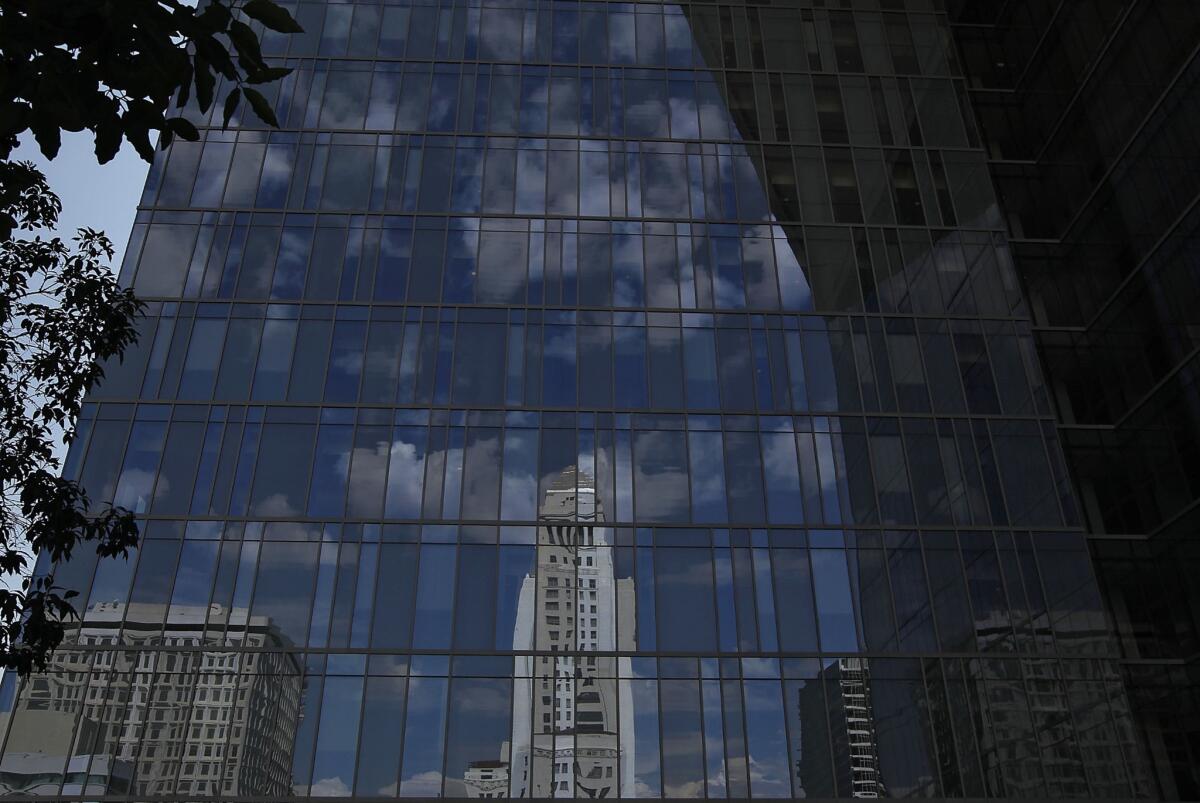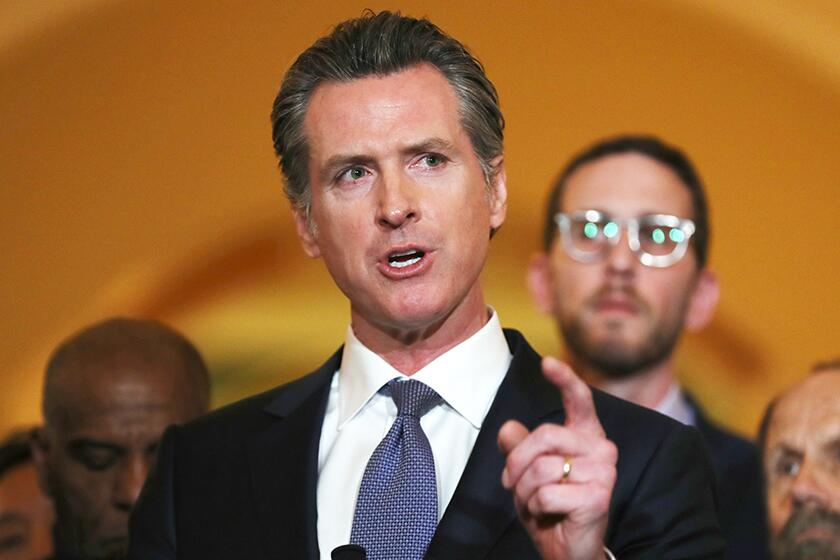L.A. wants court to revive law allowing motel guest registry searches

- Share via
Reporting from WASHINGTON — Los Angeles city attorneys are asking the Supreme Court to revive a local ordinance that gave police the authority to inspect guest-registration records of motels and hotels, arguing the surprise checks are needed to deter prostitutes and drug dealers and sometimes catch fugitives.
The city’s appeal in Los Angeles vs. Patel is one of hundreds that will be considered by the high-court justices when they meet privately Monday in preparation for a new term.
Like dozens of cities across the nation, Los Angeles has long had a law requiring motel operators to keep records of their guests. The city’s ordinance says these records “shall be made available to any officer of the Los Angeles Police Department for inspection.”
A group of motel owners went to court and complained of police searches at all hours of the night. Some said they ran their motels as family businesses and they objected to late-night inspections.
In December, the U.S. 9th Circuit Court of Appeals, by a 7-4 vote, struck down the city’s ordinance and said the surprise inspections violated the 4th Amendment’s ban on unreasonable searches.
In their appeal to the Supreme Court, the city’s attorneys complained about what they called “parking-meter motels,” which can serve as “crime magnets” in some neighborhoods.
“The city’s loss of surprise guest-register inspections has had an immediate and dangerous impact on the decent people who live and work around these motels and these communities as a whole,” said City Atty. Michael Feuer in a brief filed last month.
The city argued that a motel owner has “no reasonable expectation of privacy in a guest registry,” which is usually kept in an office that is open to the public. It listed 70 similar ordinances for cities across the nation, including Atlanta, Denver, Las Vegas, Minneapolis, St. Louis, San Diego, San Francisco and Seattle.
The case raises questions about whether a motel should be seen as private property or a public business that is subject to close regulation by the city and the police.
Frank A. Weiser, a Los Angeles attorney who represented the motel owners, said in an interview that most proprietors were willing to cooperate, but there were complaints about abuses. Sometimes police conducted inspections late at night and went into the family quarters. Weiser said many owners are Asians and some had a limited command of English.
“They felt intimidated by the police,” he said.
The motel owners initially lost in federal court. But the 9th Circuit relied on a pair of recent Supreme Court opinions by Justice Antonin Scalia that restricted police searches on private property. In one case, the high court said police may not secretly attach a GPS tracking device to a private vehicle. And last year, Scalia spoke for a 5-4 majority to say the police may not take a drug-detection dog to the front porch of a house to sniff for drugs.
“The business records covered by (the ordinance) are the hotel’s private property,” said Judge Paul Watford for the appeals court. “The hotel has a right to exclude others from prying into the content of its records.” The ruling suggested the police must have a search warrant or at least give the owner a right to challenge the search.
Weiser urged the Supreme Court to turn down the city’s appeal, saying the case does not have wide importance. “It involves a single section of a municipal ordinance, which applies only to hotel and motel registries in Los Angeles,” he wrote.
More to Read
Sign up for Essential California
The most important California stories and recommendations in your inbox every morning.
You may occasionally receive promotional content from the Los Angeles Times.











